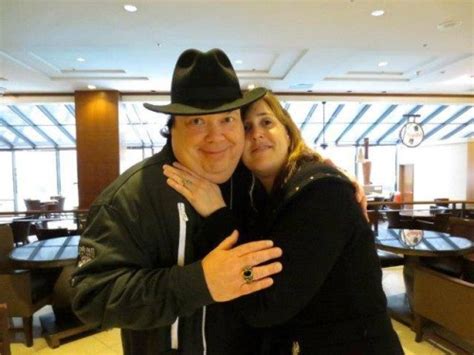A Quote by Benjamin Hoff
The major lesson Tiggers need to learn is that if they don't control their impulses, their impulses will control them. No matter how much they do, Tiggers are never satisfied because they don't know the feeling of accomplishment that eventually comes when one persistently applies one's will to the attaining of non-immediately-reachable goals.
Related Quotes
Your mind is merely a servant, and it behaves well if it is given positive impulses; it behaves very poorly if it is given negative impulses. The mind assumes that it understands whatever it controls. This is the central problem in a mind-dominated world. Substituting control for understanding will only deplete your life, leaving it stripped of richness, power, and meaning. The answers to healing your life will be found in the inner strength of your heart.
I always say there are two things to be successful. The first is decide exactly what you want - set your goals - and then determine how you will achieve them (what skills you will have to learn, what actions will you have to take). And these are totally under your control. These are not dependent upon anyone else.
My view is that those challenges will be easier to meet, those risks will be less if we vote to leave because we will have control of the economic levers; we will have control over money we send to the European Union. We will have control over our own laws, and as a result, we will be able to deal with whatever the world throws at us.
We cannot choose how many years we will live, but we can choose how much life those years will have. We cannot control the beauty of our face, but we can control the expression on it. We cannot control life's difficult moments but we can choose to make life less difficult. We cannot control the negative atmosphere of the world, but we can control the atmosphere of our minds. Too often we try to choose and control things we cannot. Too seldom we choose to control what we can ... our attitude.
First you look for discipline and control. You want to exercise your will, bend the language your way, bend the world your way. You want to control the flow of impulses, images, words, faces, ideas. But there's a higher place, a secret aspiration. You want to let go. You want to lose yourself in language, become a carrier or messenger.
One of the most difficult problems of our age is that leaders, and perhaps academics as well, cannot readily admit that things are out of control and that we do not know what to do. We have too much information, limited cognitive abilities to think in systemic terms and an unwillingness to appear to be in control and to have solutions for our problems. We are afraid that if we admit to our confusion, we will make our followers and students anxious and disillusioned. We know we must learn how to learn, but we are afraid to admit it.
We don't control everything. There are genetic influences. There are environmental exposures we don't control. I cannot guarantee anyone I counsel that by following what I hope is the good advice I offer them, they will live long and prosper. That's what I'm hoping for but I can't guarantee that. What I can tell them is this: "Look, I can help you firmly grip the wheel, and you can steer the ship. You're never going to control the winds and you're never going to control the seas. But if you sail well you can get through just about anything."
One reason we can hardly bear to remain silent is that it makes us feel so helpless. We are so accustomed to relying upon words to manage and control others. If we are silent, who will take control? God will take control, but we will never let him take control until we trust him. Silence is intimately related to trust.

































